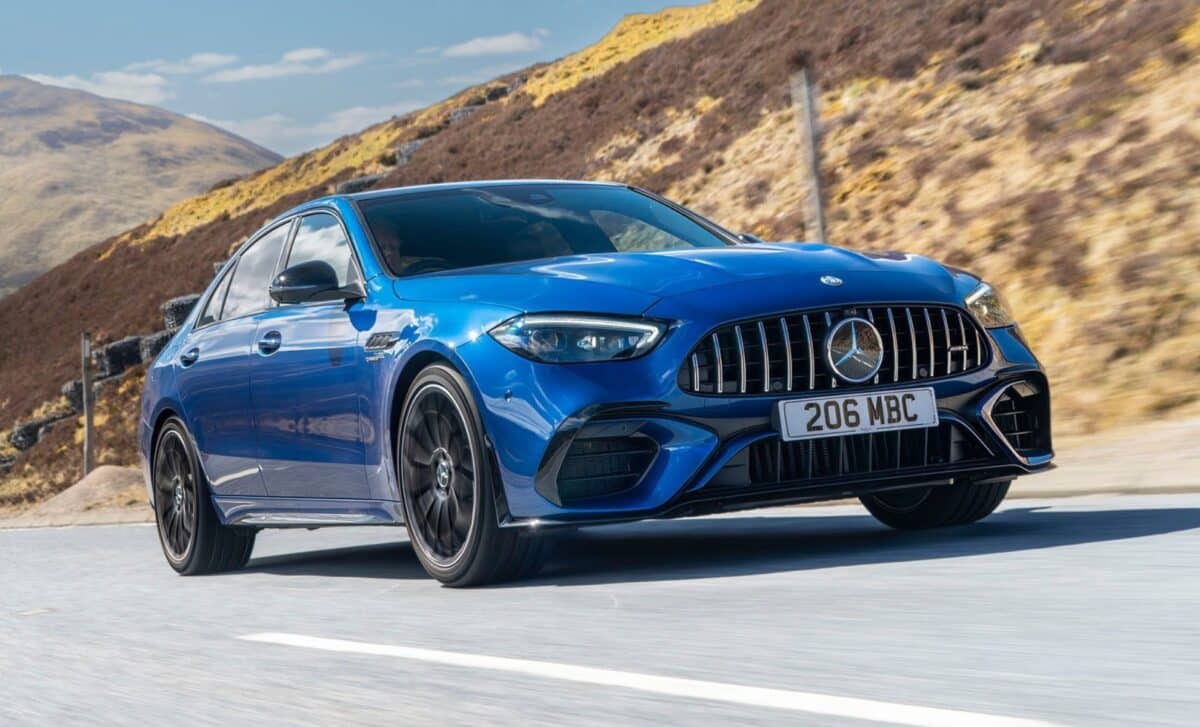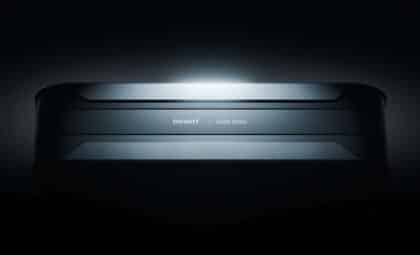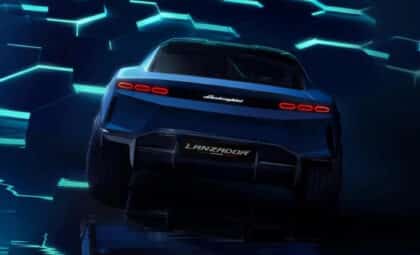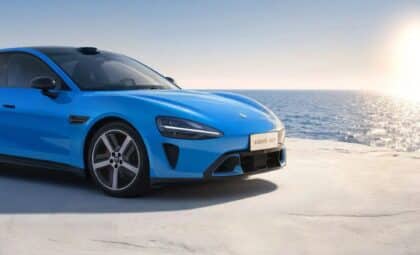First launched with a highly technical and ambitious setup, the previous Mercedes-AMG C63 S E Performance offered a combined 680 horsepower through a small-displacement turbocharged 2.0-liter four-cylinder paired with an electric motor.
While the numbers impressed on paper, the result failed to convince purists and performance enthusiasts. As reported by Actu-Automobile, the model was widely criticized for feeling “too artificial” and overweight, with driving pleasure taking a backseat to technology.
Mercedes-AMG’s decision to change course was not only prompted by lukewarm reception but also shaped by new regulatory constraints and evolving expectations from the market. The brand needed to restore the emotional connection that once defined the C63’s identity.
End of the Four-Cylinder Chapter
The current C63 S E Performance, equipped with a 2.0-liter four-cylinder hybrid engine, was never fully embraced by the brand’s core audience. Despite delivering 680 horsepower, the powertrain was seen as a mismatch for a car in this segment. Many criticized the lack of authenticity in the driving experience and the weight added by the hybrid system.
AMG has therefore decided to return to a six-cylinder format, opting for the 3.0-liter inline-six already in use on models like the CLE 53 and E53. This engine will serve as the foundation for the new C63. Depending on its configuration—mild-hybrid or plug-in—it can deliver between 449 and 585 horsepower. The move is intended to “reconcile a portion of the fans with the C63” through improved mechanical character and acoustic quality.
No V8 Resurrection
The idea of reintroducing the twin-turbocharged V8 that once defined the C63 has been ruled out entirely. The change is driven by tightening CO₂ regulations and the growing push toward electrification across the industry. AMG has no plans to bring back the V8, regardless of its historical significance within the lineup.
This decision aligns with the broader strategy at Mercedes, which is gradually phasing out larger combustion engines in favor of more efficient configurations. While some fans might view this as a disappointment, the brand is emphasizing performance and sound character in other ways.
The inline-six offers a more refined base than the previous four-cylinder and remains consistent with competitors like the BMW M3 Competition (530 hp) and the upcoming Audi RS4, which is expected to retain a V6.
Rebuilding Credibility and Trust
For AMG, the challenge now lies in regaining lost trust among driving enthusiasts. The previous generation of the C63 marked a departure from the visceral character that had defined its predecessors. In enthusiast circles, the model lost ground to rivals like the M3 and RS4—both seen as more authentic performance vehicles.
Mathias Geiser, a member of Mercedes’ board, has remained vague about whether the upcoming C63 will be offered as a plug-in hybrid or as a pure combustion model. The choice will depend on markets and regulatory demands, though both configurations are on the table. The goal, Geiser reportedly explained, is to make the C63 feel like an AMG again: powerful, engaging, and sonically expressive.









